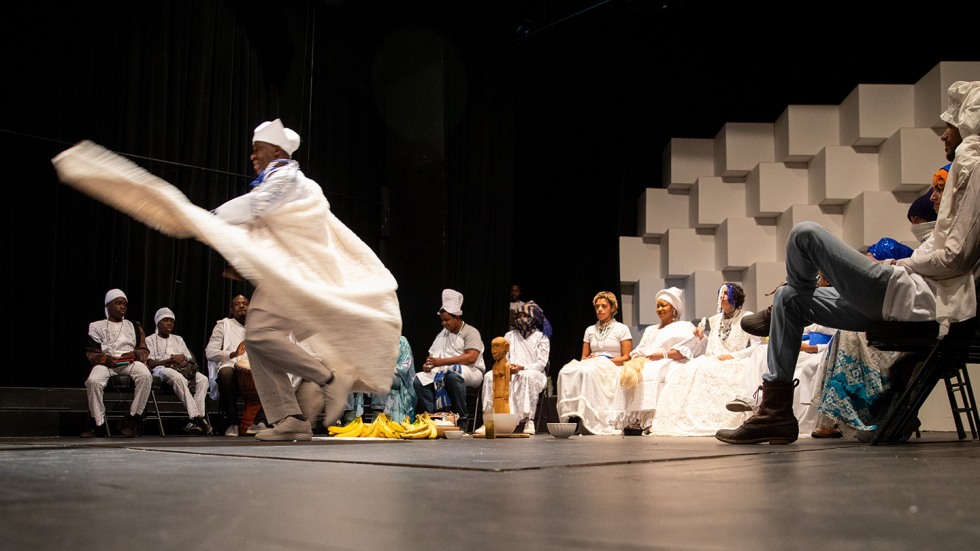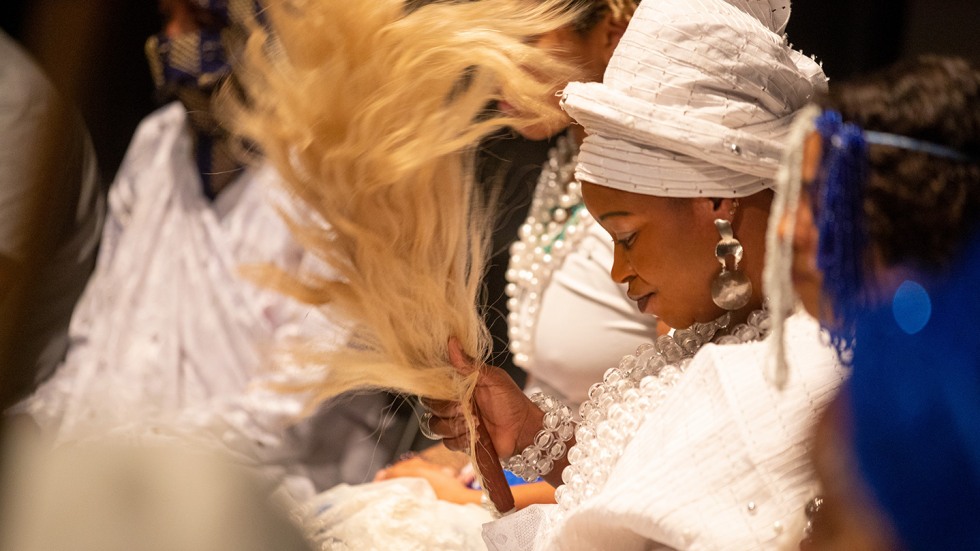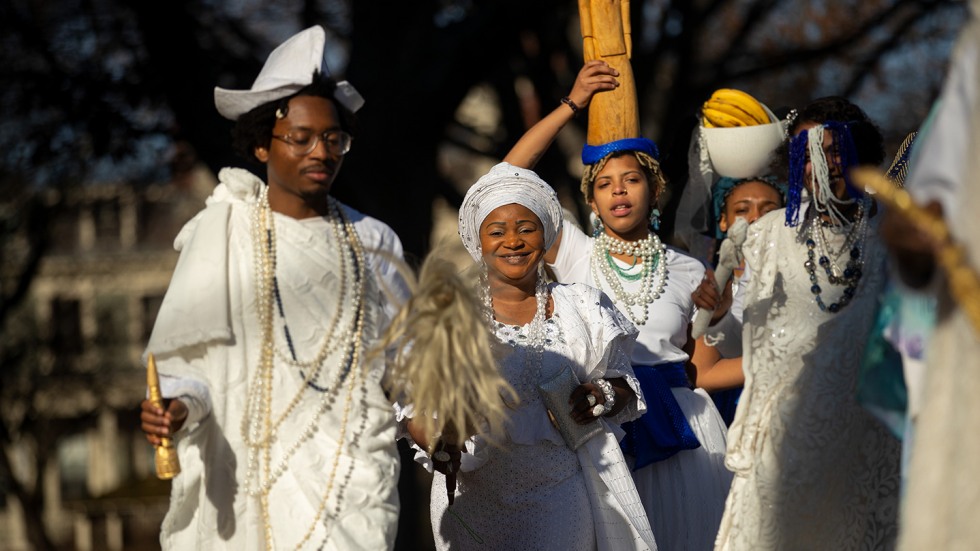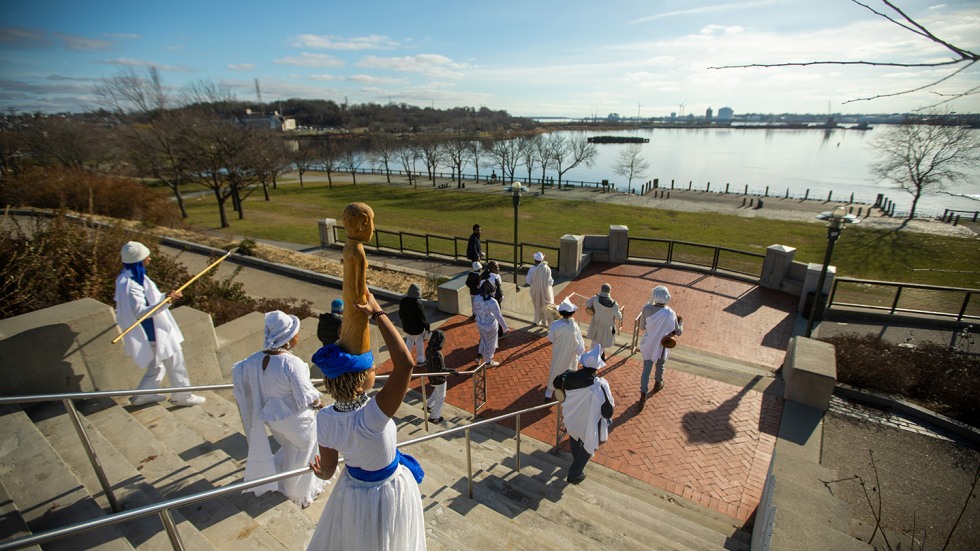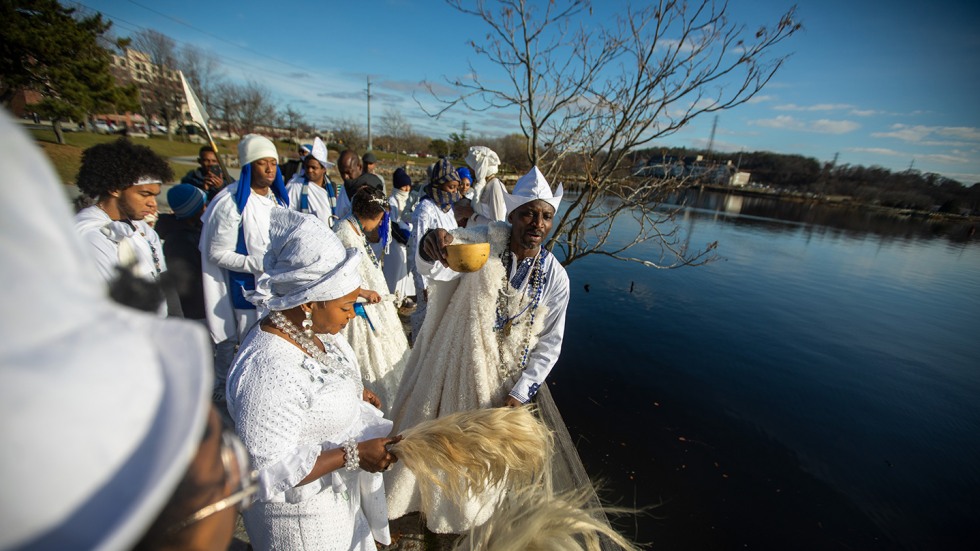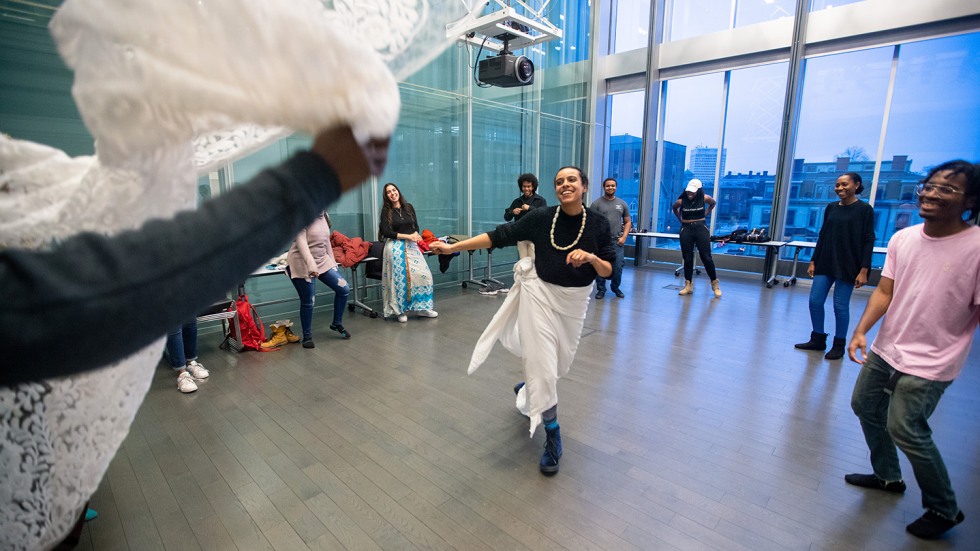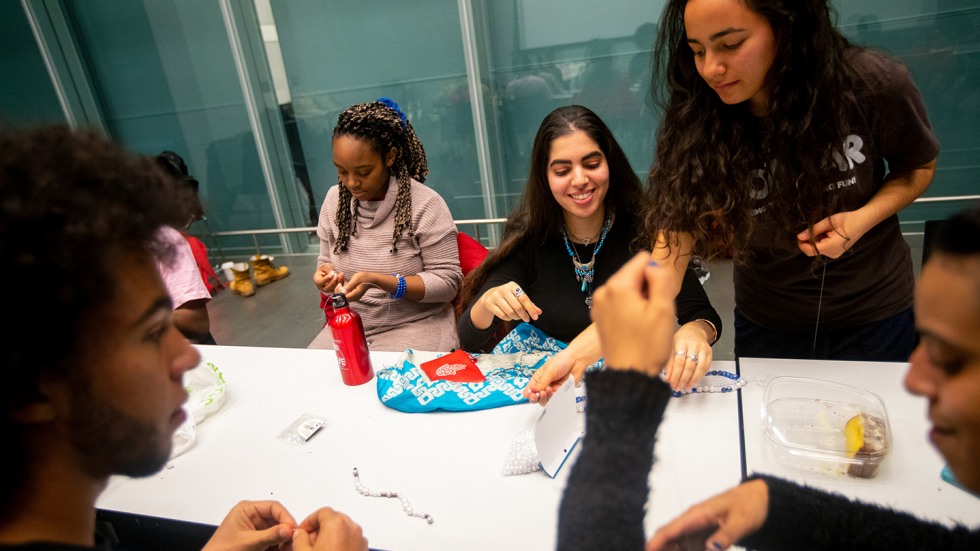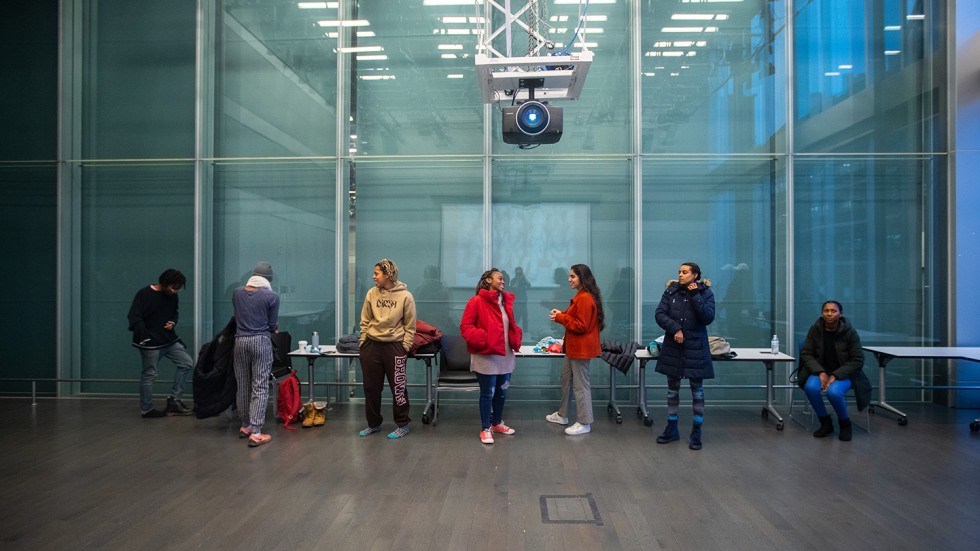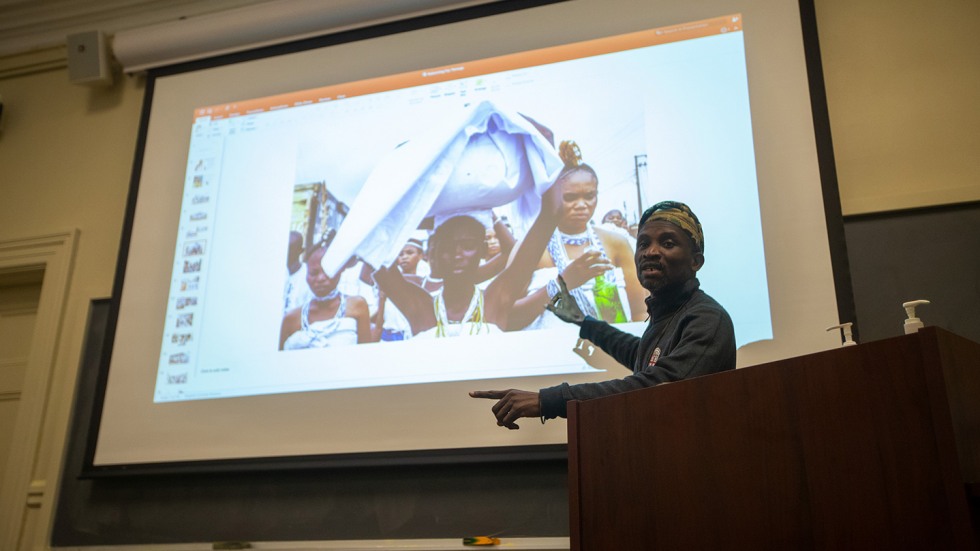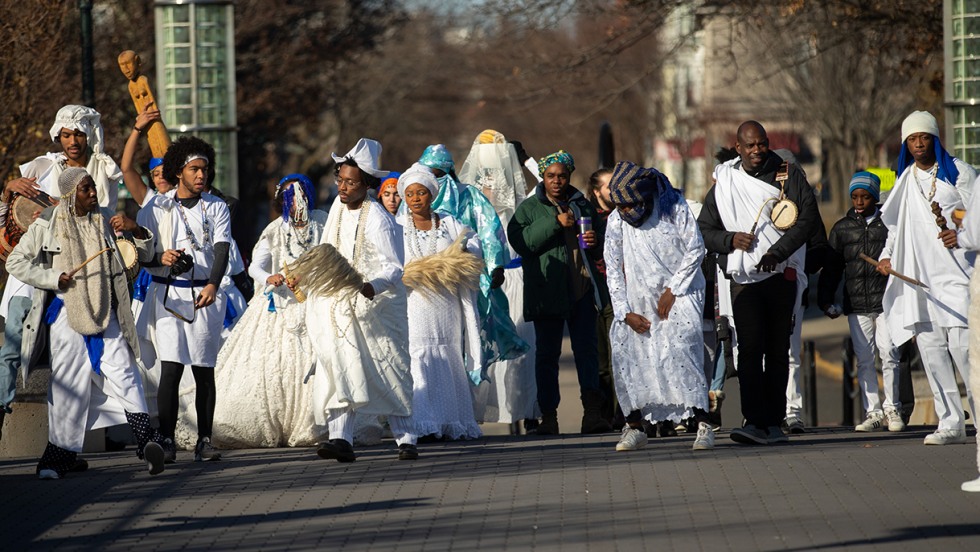PROVIDENCE, R.I. [Brown University] —On a sunny, chilly Saturday morning in December, Brown University students dressed in blue and white led a procession that wound from campus — beginning at the George H. Bass Performing Arts Space (BassPAS) on Angell Street — to the Providence River at India Point Park.
Carrying offerings and accompanied by special guests, a drummer and community members, the students were bringing to life Yemoja, a traditional festival honoring a water deity of the Yoruba religion. In that faith, Yemoja is the mother of all Orishas — the human forms of Yoruba deities. The festival, which culminated at the water’s edge, celebrates water, birth and feminine energy.
The students in “Decolonized Bodies, Spirit Bodies: Tracing Indigenous Knowledge of Africans,” a course taught by Visiting Assistant Professor of Africana Studies Jelili Atiku, were putting into practice what they learned over the course of the semester about communicating indigenous African bodies of knowledge through rituals and festivals.
"Indigenous people are knowledgeable about themselves, their environment, their past and their future," Atiku said during a late November class during which the students made final preparations for the festival. "Such information is not controlled" by any central authority, he said — the nature of that knowledge and its performance, or the performance of politically charged material, can cause conflict with a central authority.
Atiku, a renowned Nigerian multimedia artist, the 2018 Brown Arts Initiative artist-in-residence and the first Artist Protection Fund Fellow to come to the University, often uses in his art live performance where participants, costumes, actions and the audience are integrated as symbolic content. His art, which encompasses drawings, installations, sculpture, photography and video, incorporates political and social commentary on issues ranging from the effects of war to corruption and climate change. In 2016, he was arrested and detained in prison after performing his work “Aragamago Will Rid This Land of Terrorism” with collaborators in a public space in Lagos, Nigeria.
At Brown, Atiku asked his students to explore and attend to the meaning of every aspect of the Yemoja festival, from clothing and adornments to music and movement. Students used both visual arts methodologies and Rites and Reason Theatre’s Research-to-Performance method to prepare to stage the festival, and heard from visiting artists like Taiye Idahor, who is based in Nigeria and presented on the cultural and ritual importance of beads.
“This festival has endured, but it hasn’t been given the scholarship and attention that it deserves,” Atiku said of the Yemoja festival.
The course addresses that. Atiku asked students to pay rigorous attention to the methodology of live performance — both in celebrating the Yemoja festival and in creating separate, personal performances that drew on their own stories — and to bring the festival into modern times.
